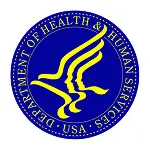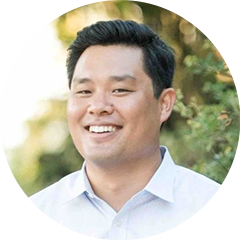Sypnosis
KPI:
Increasing data literacy to encourage cross-departmental communication, tooling, and collaboration.
Project length:
Eight-week data science training program
500K+
annual costs saved
450 applications
for subsequent program installments
At a Glance
The U.S. Department of Health and Human Services (HHS) needed to increase data literacy across the organization so that employees at all levels of decision-making could harness the power of data to identify new insights, automate workflows, and increase the efficiency of the organization. In partnership with Data Society, the HHS launched an eight-week-long data science training program called the HHS CoLab.
The tailored data science boot camp included in-person, live-streaming, and on-demand training to help HHS students maximize learning at their own pace and in the format that works best for them. The CoLab brought HHS employees together to learn new data science techniques, collaborate with each other, and develop a capstone project that had a demonstrable impact on the Department.
Client Profile
The mission of the U.S. Department of Health and Human Services (HHS) is to enhance the health and well-being of all Americans, by providing for effective health and human services and by fostering sound, sustained advances in the sciences underlying medicine, public health, and social services.
The Challenge
The U.S. Department of Health and Human Services (HHS) needed to increase data literacy across the organization so that employees at all levels of decision-making could harness the power of data to identify new insights, automate workflows and increase the efficiency of the organization.
HHS wanted its staff to have more autonomy and independence to use data science to advance the institution.
HHS identified a few key issues that challenged the organization:
- Employees had an overwhelming amount of data to sort through and analyze.
- They were increasingly spending a lot of valuable time sorting through text data and proposals.
- They did not have cohesive communities around data sharing and problem-solving and wanted to change the culture of data in the Department.
The Solution
In partnership with Data Society, the HHS launched an eight-week-long data science training program called CoLab. The customized data science boot camp included in-person, live- streaming, and on-demand training to help HHS students maximize learning at their own pace and in the format that works best for them.
An Iterative Approach
The first run of the program took 25 HHS employees from different areas of the agency, such as the National Institutes of Health and its Office of the Secretary. The students selected had a wide range of experience with data science – some were experienced coders while others were beginners.
To ensure a relevant curriculum, Data Society custom-designed a program focused on the exact skills and technologies that the HHS needed. Students were able to access a comprehensive suite of courses for staff ranging from entry-level analysts and non-technical managers to advanced data scientists.
Capstones That Drive Savings and Impact
Signature to most Data Society training, students were asked to complete capstone projects that had direct applications to their work.
Several capstone projects individually saved money for the U.S. Department of Health and Human Services, resulting in a savings of over $500,000 per year in expenses and incredible real-life applications that deliver recognized impact for constituents.
Projects include:
Homicide is the #4 and #3 leading cause of death in Native American women and men, respectively.
Operation Lady Justice was spearheaded by the Justice Department, the Administration for Native Americans, and several other departments to find solutions to the MMNA crisis. An HHS Co-Lab capstone project used text mining to analyze yearly tribal consultations, a narrative history of a tribe’s well-being provided by elders of the nation’s 574 tribes to HHS.
The capstone was able to use term search to quickly identify terms related to missing or murdered peoples in order to identify if this or other issues are affecting each tribe. The hope is with this new technology, they can create a public safety matrix where tribes can find trends happening in other indigenous communities. It gives agencies like the Administration for Native Americans necessary information to deliver resources to tribal communities.
The staff member who developed the capstone not only noted time savings as a key result but also the projectability to “acknowledges the voices of tribal nations,” and honoring and deepening the relationship between tribal communities and the agency.
Using text mining to inform outreach efforts for organ donation.
Over 111,000 people in the U.S. are waiting for lifesaving transplants, and while 90% of people support organ donation, only 50% have signed up according to a recent survey from HRSA.
This capstone project utilized text-mining to identify key terms willing and unwilling organ donors used to inform messaging campaigns and outreach. For example, they found the term “driver’s license” was correlated positively to organ donation. So, emphasizing signing up as an organ donor can happen during driver’s license renewal and even online should be included in future campaign messages.
They found religious beliefs as a common reason for people unwilling to donate an organ. With this, they’re now able to develop messaging noting most major religions in the U.S. support organ donations, and can now identify key influencers in the faith community to lead an educational campaign around organ donation in future campaigns.
Opioid overdose is a national crisis, and now we can identify opioid overdose death in high-rate areas using supervised machine learning algorithms.
This capstone identified three key social factors that contribute to opioid overdose: being uninsured, single parent, and disabled. The predictive modeling platform can identify which counties rank highest for these three variables, such as Philadelphia County in Pennsylvania, and identify if these communities are prepared.
In Philadelphia County, which ranked high for all three variables, they noticed there were no opioid crisis centers or HRSA opioid grants. With this new finding, they are able to reallocate and optimize grant funding opportunities to communities that need it the most to prevent opioid overdose deaths.
The Results
Impact from stand out capstones so far have included:
- $500,000 annual cost savings
- 4 FTEs Freed Up
- 450 applications for 30 spots in subsequent program installments
The shared understanding of the principles of data-driven decision-making and data science algorithms allowed staff from different parts of HHS (e.g., the CDC, the NIH, etc.) to communicate effectively and build cross-departmental tools and capabilities.
- Training increased efficiency and facilitated the development of new tools and solutions as they began applying their Python programming skills in the field.
- The ongoing program results in millions of dollars in annual cost savings to HHS.
- Students report the program advanced their skills, helped them identify new ways of analyzing data, and helped them automate laborious processes.
- Subsequent installments of the program had over 450 applications for 30 spots.




